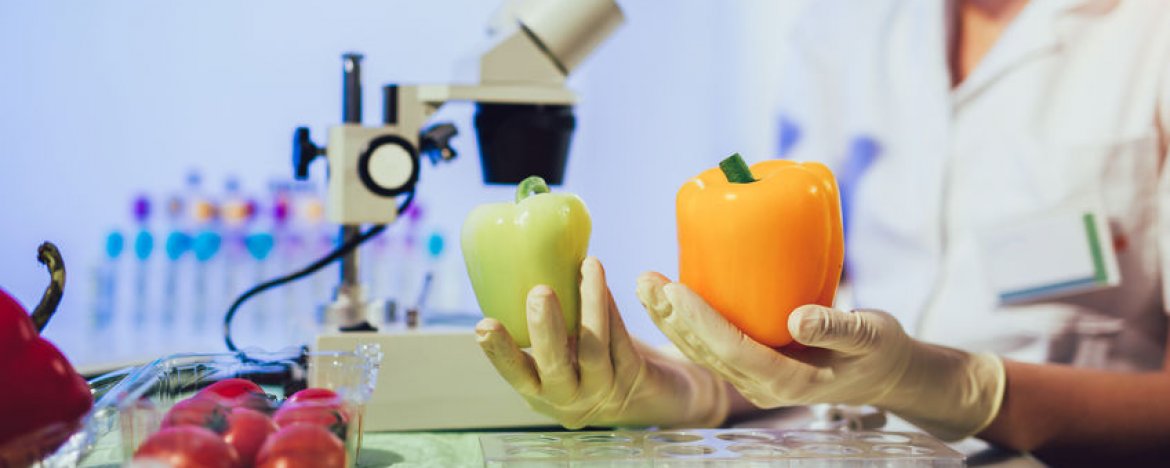A healthy eating pattern can do a lot of good for your health. It is not without reason that more and more health insurers are developing, contracting and reimbursing lifestyle programmes. But what is healthy for one person, is not necessarily healthy for another. Every body is different and so - as the term itself suggests - personalised nutrition is not the same for everyone. Do you already know what food can do for your health? Here's what we know now.
Personal nutrition: what does that mean?
How much salt a person can have depends on age. Children and the elderly can eat less salt than the average adult. The same goes for sugar. But what if you suffer from diabetes? Or a heart or vascular disease? And you just can't seem to lose weight? Can personal nutrition do anything for you? The short answer is simple: yes. The longer answer logically needs some more explanation: people with diabetes or cardiovascular disease can benefit greatly from a certain diet, or personal nutrition advice. Within the program Reverse Diabetes 2 It has been proven that people with type 2 diabetes can turn around their disease with healthy food (and exercise) as medicine. Or - as Dokters van Morgen once showed - people with cardiovascular diseases can benefit from the Pioppi diet. A low-carb Mediterranean diet, as it is described by the Dutch Nutrition Centre.
Scientists at the TNO research organisation in collaboration with Leiden University Medical Centre (LUMC) also use lifestyle as medicine, for example by having patients with type 2 diabetes take glucose or sugar tests to divide them into subgroups. Why subgroups? So they can prescribe personalized nutrition as treatment. The idea is that in this way diabetes patients will not need to use (or will use less) pharmaceutical drugs.
DNA and blood tests
 TNO's research is expanding by assessing parameters for personalized nutrition advice together with the research department of Wageningen University (Wageningen University & Research). This means the following: human DNA contains so much information that certain parts of it are relevant to nutrition and health. But, emphasizes Liesbeth Luijendijk of Wageningen University, DNA is not the only biomarker that contains relevant information. Blood analyses are also interesting, for example, because we can measure glucose and cholesterol levels using blood tests. And of course blood pressure, the height of which can also tell us something about a person's health.
TNO's research is expanding by assessing parameters for personalized nutrition advice together with the research department of Wageningen University (Wageningen University & Research). This means the following: human DNA contains so much information that certain parts of it are relevant to nutrition and health. But, emphasizes Liesbeth Luijendijk of Wageningen University, DNA is not the only biomarker that contains relevant information. Blood analyses are also interesting, for example, because we can measure glucose and cholesterol levels using blood tests. And of course blood pressure, the height of which can also tell us something about a person's health.
Dietician replaced by data?
Do all these developments mean that the dietician will be replaced? No. With the advent of such data analyses and scientific research, the dietician's advice can be substantiated or supported. But there is a new role for the dietitian on the horizon. In the near future, consumers will have more and more information at their disposal, not all of which will be equally accessible or understandable. It is up to the dietician to make this available information accessible and understandable, so that it can actually be applied. Sometimes there is such an excess of information that the consumer gets lost. The dietician can play a supporting role in this.
Technological developments for a healthy lifestyle
If you want to, you can collect your own health data using a lot of apps and other technology. Fitbits keep track of how much someone moves and how high their heart rate is. Health trackers keep track of calories, count macros or keep track of your activities during the day. Runtastic gives you information about your running session, but also nutritional advice for athletes. DNA and blood tests offer consumers even more information, but can they translate this data into practice? According to TNO, this is still difficult. The research institute is therefore working hard to translate the data without making people feel watched or deprived. Because that is still a barrier, according to the researchers. Consumers still sometimes talk about Big Brother when it comes to personalised data.
Artificial intelligence helps with tailored nutritional advice
Yet it is the consumer who benefits from this data. All this information, combined with artificial intelligence, can contribute to a healthier life and a reduced risk of chronic diseases. At the University of Wageningen, for example, artificial intelligence is used to translate information about consumers and products into customised nutritional advice. Using algorithms, they link personal data to product characteristics and nutritional knowledge. Personal data can be obtained from a blood, saliva and/or DNA test, for example. Combined with artificial intelligence, this makes it possible to give optimal, personalised nutritional advice. And the good news is: you can now even do such a test at home!
Test which food is best for you!
Via Blood Values Test you can perform various tests that will give you insight into how your body is functioning. This helps you to optimize your diet, which contributes to a long, healthy and slim life, without chronic diseases. You can choose from the following tests:


